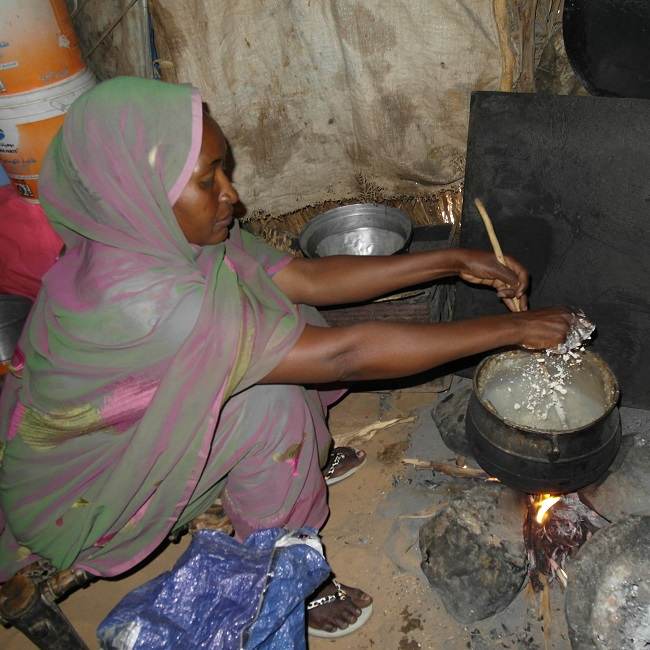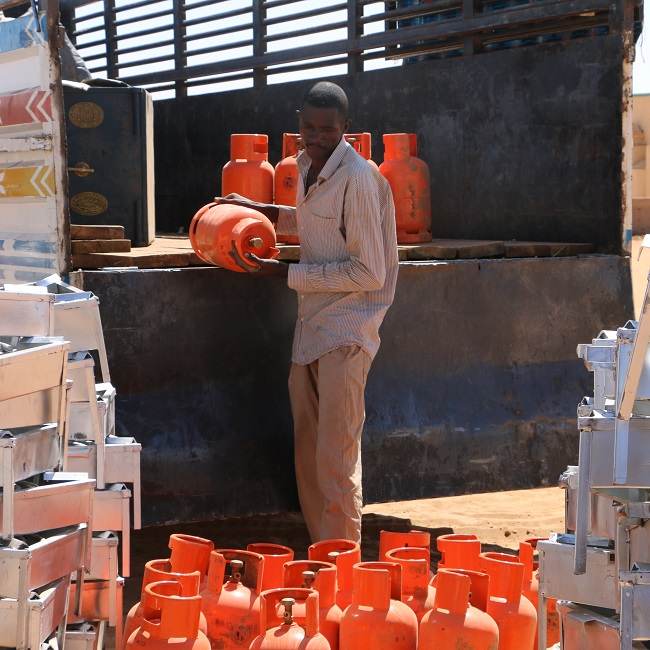Project Overview
We teamed up with the Women’s Development Association to educate communities and introduce new Liquid Petroleum Gas (LPG) stoves in El Fasher. Reducing carbon emissions and giving thousands of families clean homes, clean lungs and more money to spend on essentials.
- Community awareness programmes have made people aware of the dangers of using wood stoves, and the harm it does to both their health and the environment.
- 12,080 stoves have been installed in households in El Fadir, with micro loans offered to poorer families to help cover the initial costs. Since the installation, almost 100% of households have said the air quality in their home has drastically improved.
- The new stoves use less fuel, saving around 65% on monthly fuel bills.
- The stoves cook quicker so women have more time to earn money and be with their families.
- Deforestation has slowed and new community forests have been planted.
- The project has now become the first accredited carbon credit project in Sudan, with LPG stoves cutting more than 400,000 tonnes of Carbon Dioxide over ten years.




